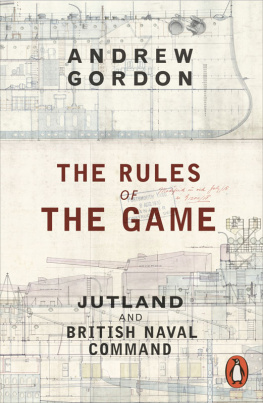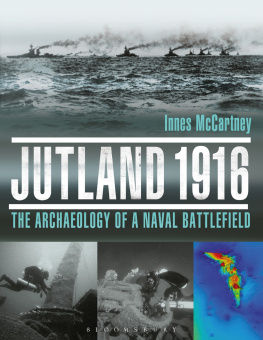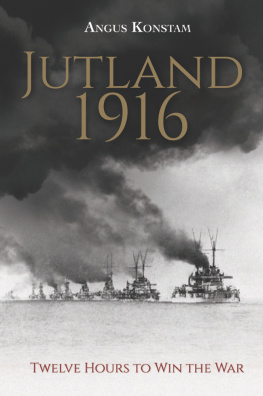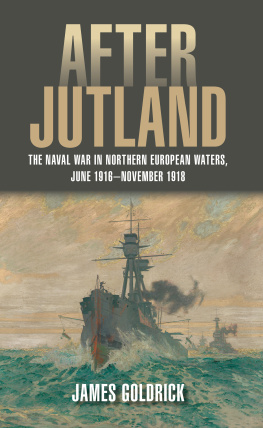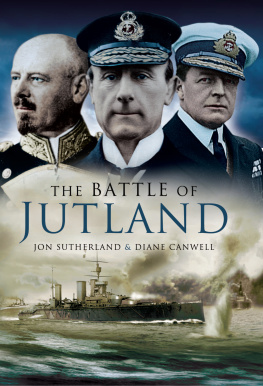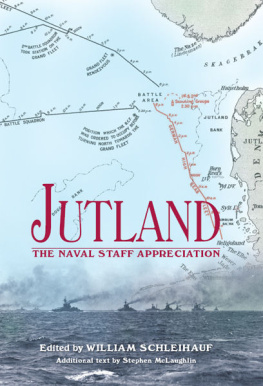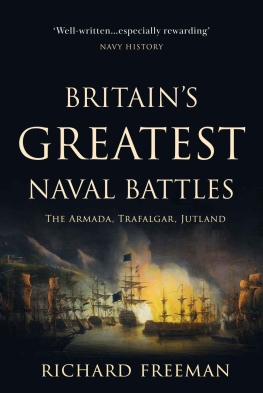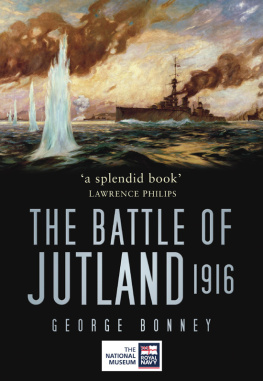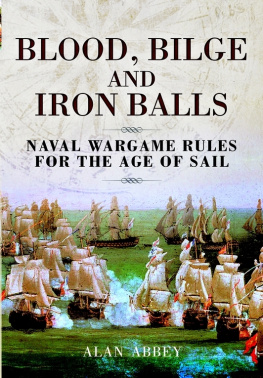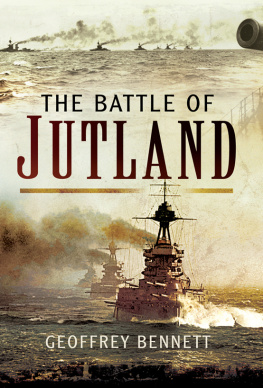Andrew Gordon - The Rules of the Game: Jutland and British Naval Command
Here you can read online Andrew Gordon - The Rules of the Game: Jutland and British Naval Command full text of the book (entire story) in english for free. Download pdf and epub, get meaning, cover and reviews about this ebook. year: 1997, publisher: Naval Institute Press, genre: History. Description of the work, (preface) as well as reviews are available. Best literature library LitArk.com created for fans of good reading and offers a wide selection of genres:
Romance novel
Science fiction
Adventure
Detective
Science
History
Home and family
Prose
Art
Politics
Computer
Non-fiction
Religion
Business
Children
Humor
Choose a favorite category and find really read worthwhile books. Enjoy immersion in the world of imagination, feel the emotions of the characters or learn something new for yourself, make an fascinating discovery.
- Book:The Rules of the Game: Jutland and British Naval Command
- Author:
- Publisher:Naval Institute Press
- Genre:
- Year:1997
- Rating:3 / 5
- Favourites:Add to favourites
- Your mark:
- 60
- 1
- 2
- 3
- 4
- 5
The Rules of the Game: Jutland and British Naval Command: summary, description and annotation
We offer to read an annotation, description, summary or preface (depends on what the author of the book "The Rules of the Game: Jutland and British Naval Command" wrote himself). If you haven't found the necessary information about the book — write in the comments, we will try to find it.
Andrew Gordon: author's other books
Who wrote The Rules of the Game: Jutland and British Naval Command? Find out the surname, the name of the author of the book and a list of all author's works by series.
The Rules of the Game: Jutland and British Naval Command — read online for free the complete book (whole text) full work
Below is the text of the book, divided by pages. System saving the place of the last page read, allows you to conveniently read the book "The Rules of the Game: Jutland and British Naval Command" online for free, without having to search again every time where you left off. Put a bookmark, and you can go to the page where you finished reading at any time.
Font size:
Interval:
Bookmark:


PENGUIN BOOKS
Andrew Gordon teaches at the Joint ServicesCommand and Staff College, Shrivenham. He has been a recipient of the Westminster Medal forMilitary Literature, and the Longman-History Today Book of the Year prize.
To those who sailed in the 10th Mine-Countermeasures Squadron between 1979 and 1994
This book has prompted me to think about severalfairly fundamental things concerning preparedness for war. Andrew Gordons ostensiblepurpose is with command-and-control aspects of the Battle of Jutland, and these he analyses inconsiderable detail. I can claim no expertise on the First World War, but I can say that hisaccount seems to me convincing from the professional viewpoint, and feels right inservice-cultural terms.
However, the books main import is the wayGordon demonstrates that, to understand the command-and-control dynamics of Jutland, we have todig quite a long way back into the Navys peacetime past. The keynote of battle-doctrinein Victorian times stemmed from the imperative to try to regulate everything even thenature of combat, which, of course, cannot be done. Gordon persuasively argues that a definingmoment for the Royal Navys battle-worthiness was the curtailment (after a disastrouscollision) in 1893 of the one really promising attempt to return the Fleets tacticaldoctrine to Nelsonic fundamentals. The result was that the Navy had to rediscover, from thebitter experiences of 191416, much about warfare which it should never have forgotten in thefirst place.
The issues of eternal relevance to thefighting services (mentioned on the flyleaf) concern not just the realism of thepeacetime training of future senior officers, but also the process of selecting those officers of achieving the necessary balance between (as Gordon puts it) regulators andrat-catchers which any fighting service needs. Each group tends to promote itsown. Continuous war will produce a predominance of rat-catchers, asclassically demonstrated by the Navy of the French Revolutionary and Napoleonic wars; continuouspeace will produce a predominance of regulators, as evidenced by the pre-1914 Navy.
In setting about the writing of my own book a fewyears ago, Patrick Robinson, who did all the hard work, quite early on remarked: Ithought Admirals sort of fell out of trees I am just beginning to realize there is a processwhich serves them up. This book tells us a great deal more about the failings of thatprocess in the long Victorian peace and points out the dangers of allowing ourselves to beovertaken by similar failings today.
It is difficult but not necessarily impossible in peacetime, when the stresses and unpredictabilities of war are hard to imagine (and stillharder to simulate), to identify those who would be good at it. The Victorian and Edwardiannaval establishment did not recognize the need. We must do so, however problematical the task ofidentification. The real danger occurs when peace changes to war because the consequences ofhaving people in (for them) the wrong jobs can be serious. Our strategic dominance enabled us towin the First World War at sea in spite of having got it substantially wrong at the outset, butthat dominance was surely historically unique. And anyway, the human, military and politicalcosts of getting the thing wrong, and learning again from fresh experience, would beunacceptable in the modern world, as well as avoidable (if we can learn from history).
History, Andrew Gordon maintains, offers us notso much lessons but rather approximate precedents. The story heunravels of the pre-1914 Navy represents, in my view, an approximate precedent whichtodays service (and, indeed, any service in peacetime) should consider carefully. In 1982most of the characters depicted in this book were still discernible in the Royal Navy, and allhad roles to play. For the future the vital thing is to have them in the right places at thecritical time that is, at the beginning of a conflict. A great deal easier said than done.
Sandy Woodward
In the late afternoon of the 31st of May 1916,fishermen and villagers on the sandy west coast of Denmark, and even farmers thirty milesinland, stopped in their daily work and turned their heads towards the sea as they heard therumble of distant gunfire. At first, perhaps, it could have been summer thunder. It went onintermittently for most of the evening and broke out again for a while in the darkest hours ofthe night. For the Danes, as neutrals, the war had so far meant shortages and rationing and theblack market. They had little love for Germany, having lost the duchies of Schleswig andHolstein to Bismarck in the brief war of 1864, but they had less wish to get involved in theholocaust of violence which had gripped the Continent now for nearly two years, and so far theyhad been spared sight and sound of battle.
But there was no mistaking this. During the nightthe westerly breeze brought the faint pungent scent of cordite to those still watching andwaiting and wondering in the Jutland peninsula. Their ancestors might have imagined Norse seagods locked in titanic combat. The truth was scarcely less awesome. Seventy miles out to sea 250warships of the two most powerful fleets in the world were engaged in a fight which might havereshaped the political map of Europe, and the world beyond, for ever. Twenty-five ships went tothe bottom and nine thousand men died. In a day or two the wreckage and the bodies startedcoming ashore, and continued to do so for more than a year. The dead were carefully interred in small neat cemeteriesand remote parish churchyards up and down the coast. A few items of flotsam, the odd brassfitting dragged up over the years in fishermens nets, ended up as curios on mantelpiecesor in local museums.
and thus in purely battle-fleet terms Jutland was one ofthe cheapest strategical victories in history. Yet for the British the encounter was aheart-breaking disappointment and a source of prolonged acrimony.
It was, as Jellicoe said,unpalatable, because, while the Germans escaped wholesale destruction, the Britishbattlecruisers the advanced force of the Grand Fleet, under Vice-Admiral Sir David Beatty suffered losses out of all proportion to any subsequent gain, in the process of decoying Scheerinto Jellicoes trap. It was to be of little consolation that Jutland persuadedGermanys naval leaders that such an encounter must never be risked again, and assistedtheir conversion to unrestricted U-boat warfare: if the main fleet engagement had proceeded asmorale and mathematics had promised, even the loss of three battlecruisers and their 3,300 menwould have appeared justifiable in the grim profit and loss columns of sacrifice.
Beattys achievement in drawing the HighSeas Fleet into the killing ground in front of Jellicoes 240 heavy guns, in spite ofdevastating setbacks, was a tribute to his leadership, single-mindedness and stamina, but tohave the enemy escape at the last moment, like Houdini, was, in Beattys own words,gall and wormwood.
It might be thought that Jutland has already beenwell enough raked over. And furthermore,
it is too easy to criticize leaders whensitting in comfort with all the facts available and explanatory diagrams at hand for reference.One is apt to forget the real conditions which existed at the time, when all that could be seenwere the dim outlines of a few ships, vanishing before it was possible to distinguish friend orfoe.
Font size:
Interval:
Bookmark:
Similar books «The Rules of the Game: Jutland and British Naval Command»
Look at similar books to The Rules of the Game: Jutland and British Naval Command. We have selected literature similar in name and meaning in the hope of providing readers with more options to find new, interesting, not yet read works.
Discussion, reviews of the book The Rules of the Game: Jutland and British Naval Command and just readers' own opinions. Leave your comments, write what you think about the work, its meaning or the main characters. Specify what exactly you liked and what you didn't like, and why you think so.

